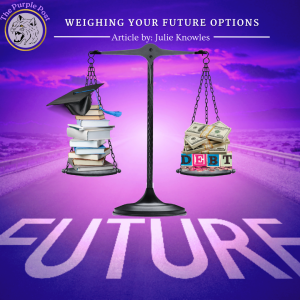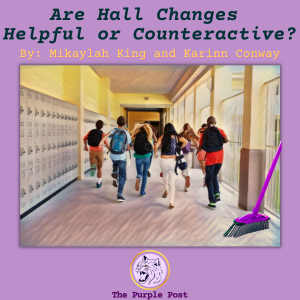Varying backgrounds, reasons draw women to 2020 Presidential race
May 16, 2019
With the November 2020 presidential election already a highly anticipated event, candidates have begun campaigning in earnest.
Six reasons make this election unlike any other: Elizabeth Warren, Kamala Harris, Amy Klobuchar, Tulsi Gabbard, Marianne Williamson, and Kirsten Gillibrand. Out of the twenty-two official candidates that have announced their run for president, six of them are women, which is the most in US history, according to CNBC’s Carmin Chappell. All six of the female candidates are running in the Democratic race, alongside several male counterparts such as Bernie Sanders and Joe Biden.
The six women running in the election hail from all over the United States and come from various backgrounds, political and otherwise. Each bring a specific, fresh outlook of politics to their campaigns and draw a margin of people from all over the nation. Though they are running under the same party, the women all stand independently in their uniqueness.
Leading the polls is Massachusetts Senator Elizabeth Warren. She officially announced her participation in the race on February 9th of 2019. According to Kate Taylor of the New York Times, Warren called for “fundamental change” in her bid for presidency.
Currently serving her first term, California Senator Kamala Harris announced her candidacy on January 21st. She stated on Good Morning America, “I love my country, and this is a moment in time that I feel a sense of responsibility to fight for the best of who we are.” Harris gained national attention when she was elected Attorney General in 2010, then again when she was elected as a senator in 2016.
On February 10th, Amy Klobuchar announced her presidency in 16 degree weather in Minneapolis. According to Rachel Scott at ABC News, Klobuchar stated, “I stand before you as the granddaughter of an iron ore miner, the daughter of a teacher and a newspaperman…to announce my candidacy for president of the United States.” Klobuchar was the first woman elected to the United States Senate from Minnesota. Klobuchar is a lawyer and has been serving as a senator since 2007.
Serving as Hawaii Representative since 2013, Tulsi Gabbard announced her candidacy on January 11th. Gabbard stated in an interview on The Van Jones Show, “There are a lot of reasons for me to make this decision. There are a lot of challenges that are facing the American people that I’m concerned about and that I want to help solve.” She was the first Samoan American and first Hindu member of the United States Congress.
Well-established author and activist Marianne Williamson officially announced her race on January 28th. She has published over thirteen books, four of which were on the New York Times best-sellers list. Williamson is noted as Oprah’s spiritual advisor by E.J. Dickinson. In her speech, Williamson said, “Our national challenges are deep, but our political conversation is shallow. My campaign is for people who want to dig deeper into the questions we face as a nation and deeper into finding the answers.’’ Although Williamson is not a politician of any kind, she is not alone in running without political experience; Andrew Yang, a tech entrepreneur, is also running as a Dem. without any experience.
Attorney General and the junior senator of New York since 2009 Kirsten Gillibrand officially announced her candidacy on January 15th. She was also a member of the House of Representatives from 2007-2009. Gillibrand announced her presidency on The Late Show with Stephen Colbert, stating, “I’m going to run for president of the United States, because as a young mom, I’m going to fight for other people’s kids as hard as I would fight for my own.”
Having six women run for president in the same party is previously unheard of in US politics. Only two women, Jill Stein and Hillary Clinton, ran in the 2016 election, each under separate parties. After securing the Democratic nomination, Clinton ultimately lost the election. At that time, many news sources, such as NPR and PBS, cited sexism as a leading role in Clinton’s loss. NPR’s Tamara Keith wrote on October 23rd of 2016, “Perhaps it was inevitable that with the first female nominee of a major political party on the ballot, the race for president would have undercurrents of sexism. But what wasn’t inevitable is just how out in the open it has been.”
Conversely, 2018 was branded as the “Year of the Woman” as more women were elected in Congress than ever before. Over thirty-six women were elected to Congress in 2018, bringing the number of women in the House to 102, the highest total in US history. According to Vanessa Williams of the Washington Post, women of color make up a whopping 42% in the House. The first female Muslim, first Native American ever, first Latina woman, and second black woman were elected to the House 2018.
Current President Donald Trump has officially filed for reelection. Though Trump has not yet established a campaigning style, Washington Post columnist Michael Gerson noted, “Toppling a sitting president of your own party is a maneuver with the highest degree of difficulty.” It is more than likely that Donald Trump will receive the Republican nomination.





